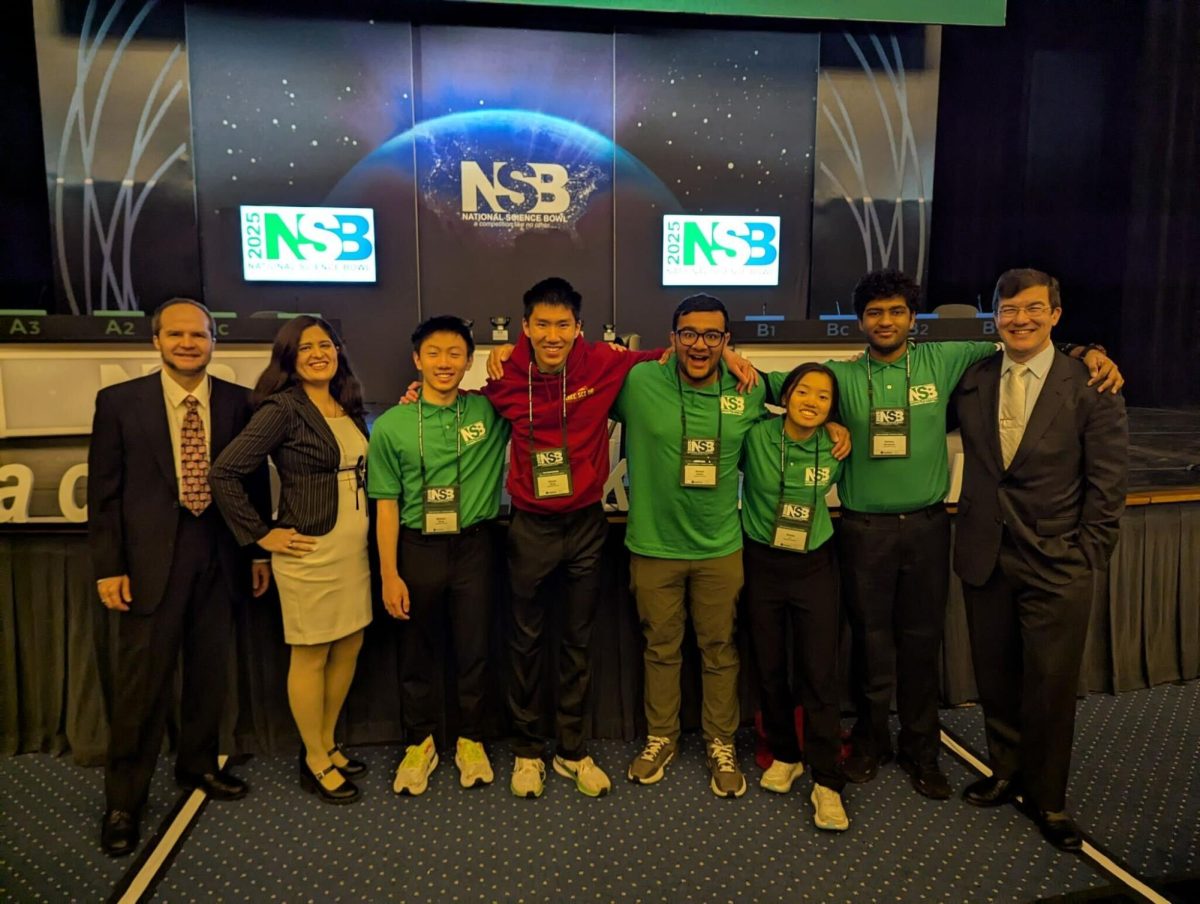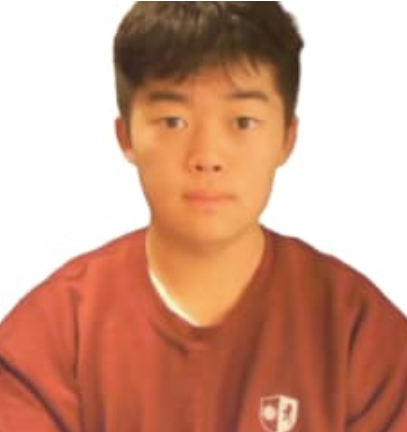Five students. Four buzzers. One question. And a championship on the line.
But unlike Metros played in packed stadiums, there isn’t cheering. There isn’t even any noise. Just a voice reading fast, a few seconds of silence, and then a sharp click as a player buzzes in. “Michelson-Morley experiment!” someone shouts, and half the room slumps in their seats while the other half erupts into wide grins. The buzz marks the end of the match.
Welcome to Science Bowl.
To the untrained eye, it might seem like simple, fast-paced trivia. But to the Lakeside team that placed fourth in the nation this year, Science Bowl is something else entirely: a test of memory, instinct, teamwork, and resilience. And it’s a story that nearly didn’t happen.
“This team didn’t exist two years ago,” says junior Vishnu M., the team’s founder and captain. “When I got here in ninth grade, there was no Science Bowl team. It had died out after a bunch of seniors graduated.”
But Vishnu had just come off a middle school national title, and he wasn’t about to let that momentum go to waste. “I remember showing Rohan [D. ’25] a video of our final match from eighth grade. We were sitting in the library, and I told him, ‘We’re doing this here.’”
And so they did. The team formed slowly. They found an advisor, recruited teammates, and practiced using old, egg-shaped buzzers passed down from Vishnu’s sister. “It was very unofficial,” Vishnu laughs. “We didn’t even have real buzzers until the week before Regionals this year.”
Despite the rocky start, the team steadily improved. After finishing third at Regionals in their first year and twelfth at Nationals the next, they entered this season determined to go further. And in May, they did exactly that—finishing in the top four at the National Science Bowl in Washington, D.C.
This year’s story wasn’t just about steady improvement. It was about bouncing back from a devastating early loss.
The team had just started Nationals when they were upset by Florida’s Frazier School, one of the tournament underdogs. “That was our lowest moment,” Vishnu says. “We knew we only had one more loss before we were out. After that match, we were staring down the possibility of finishing outside the top ten.”
What followed was remarkable. The team regrouped over lunch, took a deep breath, and started climbing back—one match at a time. They went on a five-game win streak, knocking out heavyweights like Nevada’s Davidson, North Carolina’s Enloe, New York’s Melville, and California’s Mission San José. “Mission was predicted to come in second,” Vishnu says. “And we beat them. It was a nail-biter, but we pulled it off.”
National Science Bowl rounds are fast and demanding. Players have five seconds to buzz after a toss-up finishes, but often they need to interrupt—buzzing before the question even ends. “It’s not just knowing facts,” says Rohan. “It’s knowing when the question is about to ask what you already know. You have to trust your gut.”
That trust paid off, especially in what might’ve been their most iconic moment of the tournament.
Late in the bracket, with the pressure high and nerves running thin, a physics question came up. The moderator had barely begun reading it when senior Daniel W. buzzed in.
“Michelson-Morley experiment,” he said.
Correct.
“That buzz flipped a switch in my brain,” Daniel remembers. “Before that, I felt kind of mid. But after that—I was locked in. That moment brought everything together.”
When their opponent, Mission San José, failed to correctly answer a question later that bracket, Lakeside’s victory was set in stone. Then, Daniel did something a bit brash. “I buzzed before they finished reading the question, and instead of answering, I said ‘Thank you for the great round!’ and stood up.”
Moments like that weren’t just luck, however. They were the result of long hours, sharp instincts, and a deeply balanced team. The five members — Vishnu, Emma, William, Rohan, and Daniel — spent hours at school and at Vishnu’s home practicing with vast problem sets.
While many Science Bowl teams rely on one star buzzer, Lakeside’s strength came from its teamwork. Vishnu handled Earth science and math. Emma L. ’27 covered biology. William W. ’27 specialized in chemistry. Rohan and Daniel took on physics, astronomy, and computer science.
“We’re one of the most balanced teams in the country,” Vishnu says. “Everyone brings something different. That’s what makes us strong.”
Daniel, one of two seniors on the team, is blunt when asked about the reward: “There’s not really one.”
“There’s no individual medal, no huge spotlight. Even if you win Nationals, it’s not something that makes or breaks your résumé,” he explains. “You do it because you love it. Because you love science. Because you love the team.”
That love was clear at every stage of the competition. Even after their final match, Lakesiders stayed in the audience, watching the final rounds. “It was super inspirational,” William says. “Getting to listen to the toughest questions of the tournament and watching how the best teams would answer with ease was such an amazing experience.” Watching how his fellow teammates and other teams played has inspired him to dig further into the subjects he loves to one day achieve even higher levels of “competition and subject finesse.”
Emma agrees. “And a lot of the words might sound weird or completely unfamiliar at the beginning,” she admits. “But quicker than you think you’ll know exactly what they mean.”
With Daniel and Rohan graduating, the team is already preparing for the future.
“We’re not done,” says Vishnu. “We want to keep building. We’re hoping more students will join next year, especially underclassmen.”
Another thing the team hopes for: more support from the student body.
“Science Bowl doesn’t really get recognized for competing nationally, while Athletics has state send-offs,” Rohan says. “Even just a quick shoutout would mean a lot.”
As for next year? The team has its sights set on finishing what they started.
“Fourth in the nation is great,” Vishnu says. “But there’s still one spot higher we haven’t reached yet.”
But for now, the buzzers are packed away, and Nationals are over. But in a quiet classroom — or dorm room — one of them might be reading another textbook, solving a difficult chemistry problem, or setting a stopwatch for another speed drill.
And maybe, some of next year’s team members are just starting to learn how to answer their first bonus question.
Because this time, the click of the buzzer is just the beginning.


